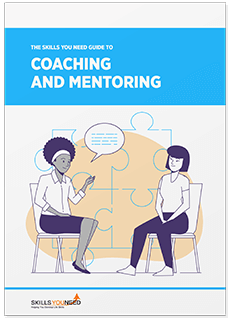What is Life Coaching?
See also: What is Coaching?Life coaching is a widely misunderstood approach.
By some considered a modern form of counselling, by others an expensive agony aunt and by many a bi-product of American's attitude to chasing the proverbial dream. The truth couldn't be more different.
Life coaching has grown to be a hugely successful form of talking therapy, to the extent that it has helped turn people’s lives around.
A life coach is someone that looks to empower others by helping them make, meet and exceed goals in both their personal and professional lives.
A Key Aspect of Life Coaching is Confidence
Often people that use a life coach are short of self-confidence and find themselves in a routine or rut that lacks enjoyment or excitement.
Their self-worth is low or the challenge facing them too high. A life coach essentially seeks to reinstall an individual’s faltering confidence and ensure they have it within themselves to live up to their potential.
Three words can be used to describe what a life coach does:
- Guidance
- Empowerment and
- Improvement
Guidance is the life coach providing the tools and support for someone to broaden their perspective and open their mind, hence enabling them to reach their goals.
Empowerment is to a large extent down to the individual to realise their own self-worth and self-belief that has, for one reason or another, diminished.
And improvement in the sense that an individual will go from where they are to where they want to be, in effect reaching their goal.
Find out more on our pages: Building Confidence, Self-Esteem and Personal Empowerment.
Life Coaching Can Help
Life coaching can help with virtually any aspect of someone’s life, whether it is in their personal or professional life.
Hiring a life coach for personal difficulties has become a huge market and is continuing to grow.
Most often a life coach's services are required for family coaching or help with a relationship. With over a third of all marriages in the UK ending in divorce, more and more people are turning to a life coach in an attempt to save their relationship.
The stress of work coupled with financial worries mean young couples have less time for each other and this heavily impacts upon their home life and in turn causes strain in a relationship.
As a result, the demand for relationship coaching has risen exponentially over the last decade.
There are many other reasons why people seek the services of a life coach for personal endeavours.
These vary from a lack of motivation to exercise, help taking up a new hobby or indeed improving at an existing hobby, and having someone to consult before taking a gap year or year abroad.
Business Coaching
Life coaching has helped people in their professional lives for a long while, dating back to the 1980’s.
Business coaching can support people in all lines of work. Whether it is executive coaching for senior managers, interview coaching for job seekers or start-up business coaching for entrepreneurs, all have proven to be massively successful in fulfilling an individual’s goal.
Coaching has also been seen to help with motivating a workforce or helping someone find a work/life balance that has for one reason or another been lost.
Of course people are going to be sceptical about firstly turning to a life coach and secondly opening up to someone in an intimate environment.
However the success of a life coach is highly dependent on the individual and their desire to change.
A life coach isn't a miracle worker, just as a counsellor isn’t. But rather than dwelling on the past and probing what has gone before, a life coach has a more positive outlook and will concentrate on the future and encourage personal development.
Life coaching sessions are most commonly conducted face to face, however it has been known for them to take place over the phone or even via video chat services such as Skype.
Further Reading from Skills You Need
The Skills You Need Guide to Coaching and Mentoring
Coaching and mentoring require some very specific skills, particularly focused on facilitating and enabling others, and building good relationships. This eBook is designed to help you to develop those skills, and become a successful coach or mentor.
This guide is chiefly aimed at those new to coaching, and who will be coaching as part of their work. However, it also contains information and ideas that may be useful to more established coaches, especially those looking to develop their thinking further, and move towards growing maturity in their coaching.
Life Coaching: What to Expect
The first life coaching session will look to gain an overall perspective of someone's life, before identifying which area they seek to improve or are currently unhappy with.
The life coach and client will agree goals that during sessions will be broken down into more achievable objectives.
It is then down to the individual to go away with the techniques they have been taught and work on what has been agreed.
As mentioned previously in the empowerment phase, it is between sessions that the individual must possess the drive and focus to want to change. This will be facilitated by the life coach who during the sessions will change how someone looks at both themselves and the rest of the world and in time a more positive thought process will be developed. It is the alteration of their thought process combined with the desire to change and challenge themselves that will allow the individual to ultimately achieve their goals.
About the Author
This page was written exclusively for Skills You Need by Life Coach Directory.


